#constitutional
Text
Oklahoma federal judge ruled that the law banning Marijuana users from possessing a firearm is unconstitutional.
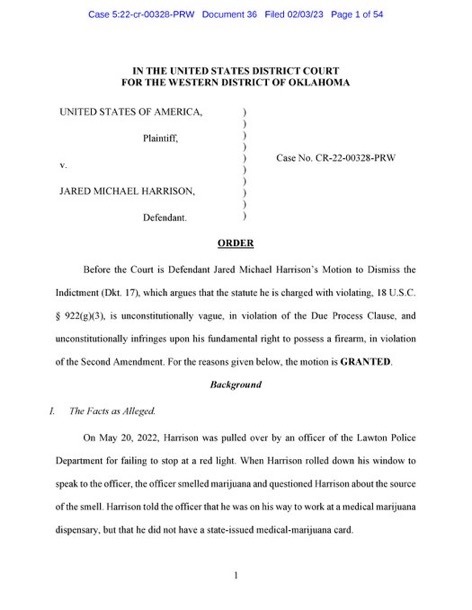
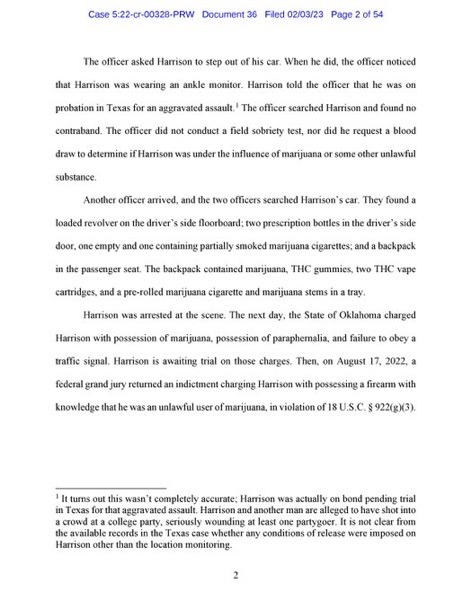


280 notes
·
View notes
Text

Enough said.
#abortion#abortion rights#choose choice#it’s a woman’s right to choose#roe vs. wade#female empowerment#the future is female#pregnancy#health#healthy living#supreme court#justice#human rights#humanity#empathy#her body her choice#bans off my body#constitutional#unconstitutional#pro choice#enough said#just stfu#privacy#private#personal#personal choice#mind your own buisness#mind your own damn business#straight talk#say it like you mean it
409 notes
·
View notes
Photo
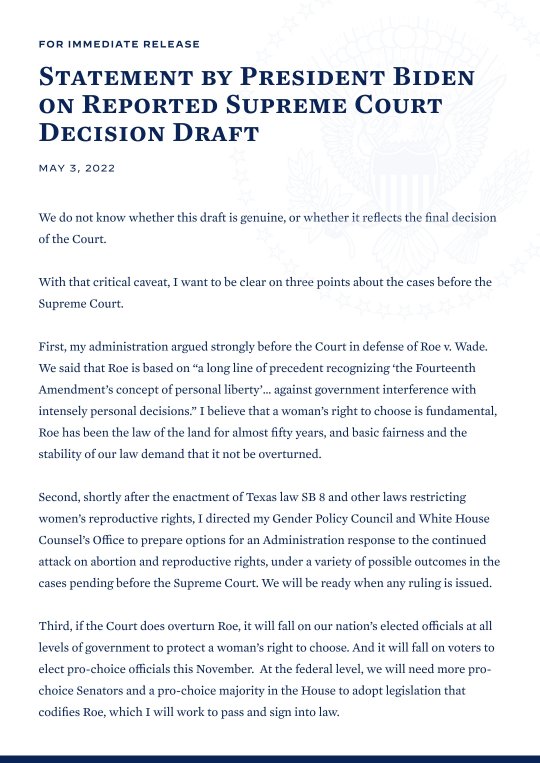
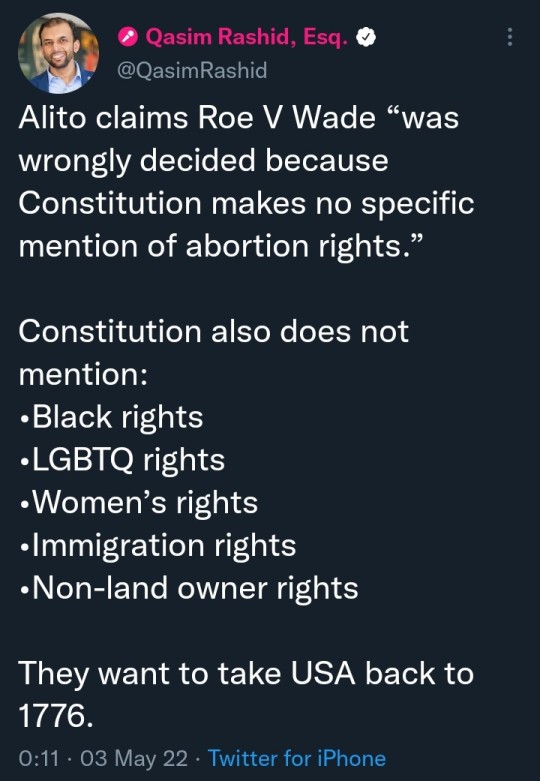
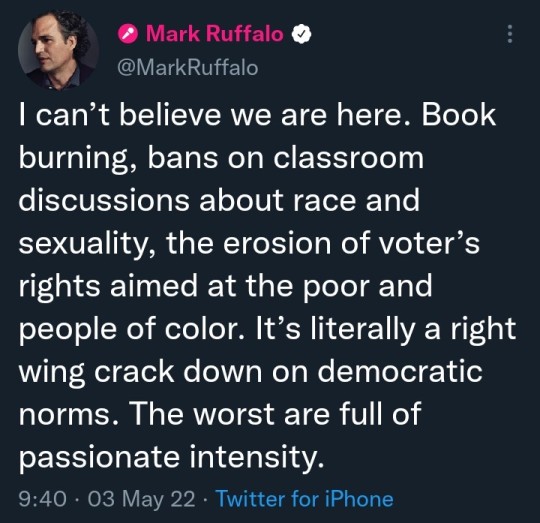


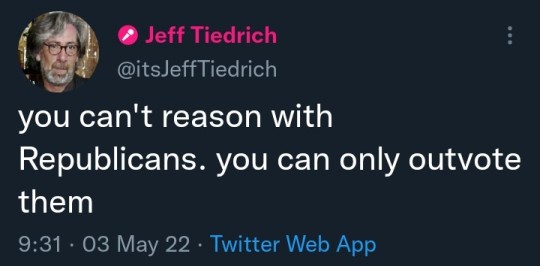
#abortion#abortions#pro-choice#choice#right to choose#Roe v Wade#Roe#Supreme Court#SCOTUS#Republican#Republicans#GOP#MAGA#right#rights#human#civil#Constitution#Constitutional#protect#protection#vote#voting#voter#votes#Martin Niemoller
513 notes
·
View notes
Text
coastalcurmudgeon asked: Hi, would you mind pointing me towards any articles, books, video essays etc that make reasonable modern pro-monarchist arguments? When queen Elizabeth passed a few months ago it got me wondering why not just the British but several other wealthy democratic nations hang on to their monarchs. I'm from the US so it's a little difficult to understand the monarchies perspective off the bat and you seemed a good person to ask about where to find good arguments for it. Thanks and have a nice day
I want to thank you for asking such a simple question but one that many of us don’t really give a thought to. We get sucked into the tittle tattle of court intrigue or the tawdry gossip of the latest royal scandal made public, partly because it’s a visceral pleasure to see those above us squirm in discomfort, and partly to see them bleed - perhaps to remind us that they are as mortal and as fallen as we all are.
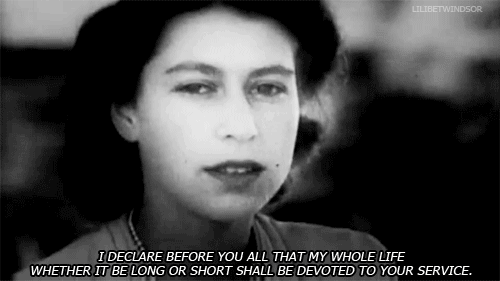
In the wake of Queen Elizabeth II’s death, the question of monarchy is brought sharply into focus. The sombre and reflective tone of the tributes to the late Queen Elizabeth II suggests the esteem in which she was held, as well as the apparent popularity of Britain’s constitutional monarchy. But it was not always so, as the queen herself was fully aware. She might have remained more or less beyond reproach, but her family-members have not. Often the Windsors seemed like a bad soap opera, attracting derision and resentment in equal measure. Yet, like their ancestors, they have slogged on regardless. Other monarchies have been toppled, or cut down to size, all over Europe and beyond.
We focus on the institution and its rituals and trappings without asking the underlying question of why? Why do we believe in the institution? It’s a question that even ardent monarchists find hard to answer properly.
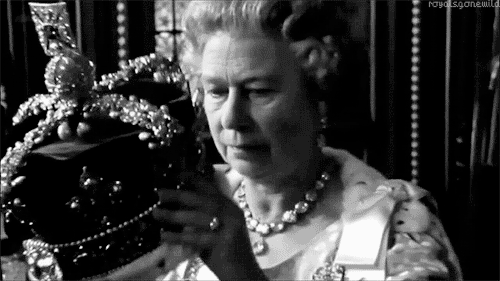
The hard leftists of course do know why they want to get rid of a monarchy in the name of some vague and unrealised ideal of equality and freedom from tyranny as well in the name of democracy. They do so out of historical ignorance given that the constitutional monarchy does exactly that and has been paradoxically a guarantor of these ideals through custom, heritage, and the rule of common law. For them it’s better to destroy than it is to build as Roger Scruton once said. Being historically illiterate, they don’t fully understand the folly on pulling one thread runs the danger pulling the entire tapestry of a nation apart.
I don’t want to caricature all them with one brush because not all leftists believe in the destruction of the monarchy in Britain. Some understand its value and even harmonise it within their leftist beliefs.
Stephen Fry, a socialist in his political beliefs but still widely considered (and righty so) as a national treasure, came out in his support of the monarchy in Britain. The beloved British actor, writer and presenter admitted in a podcast with Jordan Peterson that the Royal Family in interviews that “on the face of it is of course preposterous”. But he went on to explain how they can play a key role in society. The author referred to the Queen’s weekly Audience with the Prime Minister and suggested that the US could benefit from having a Monarch. He explained how his thoughts stemmed from his belief in “ceremony, ritual and symbolism”.

Fry told the podcast: “I look at America and I think if only Donald Trump and now Biden, if every week they had to walk up the hill and go into a mansion in Washington and there was uncle Sam in a top hat and striped trousers.” He explained how “uncle Sam” might be the US equivalent of a Monarch and described him as “a living embodiment of their nation”.
Stephen Fry added: “More important than they were that’s the key. He [uncle Sam] is America, the President is a fly-by-night politician voted for by less than half the population and he has to bow in front of this personification of his country every week. And that personification, uncle Sam can’t tell him what to do, uncle Sam can’t say ‘pass this Act and don’t pass that Act and free these people, give them a pardon’. All he can do is say ‘tell me young fella what you done this week’ and he’ll bow and say ‘well uncle Sam’.”
He suggested how uncle Sam might reply “oh you think that’s the right thing for my country”. Fry concluded: “Well that’s what a constitutional monarchy is and of course it’s absurd but the fact that Churchill and Thatcher and everyone had to bow every week in front of this something.”
The author went on to claim that “empirically look at the happiest countries in the world that’s all you need do and they happen to be constitutional monarchies”. Fry finished up by listing Norway, Sweden, Belgium, the Netherlands, Luxembourg and Japan as some of those "happiest" places who have monarchies.: “They’re always right up there on the list. Now it may be that we can’t find the causal link between the constitutional monarchy but it might just be something to do with that.”
I happen to think Stephen Fry is right. For these reasons yes, but there are much better ones too.
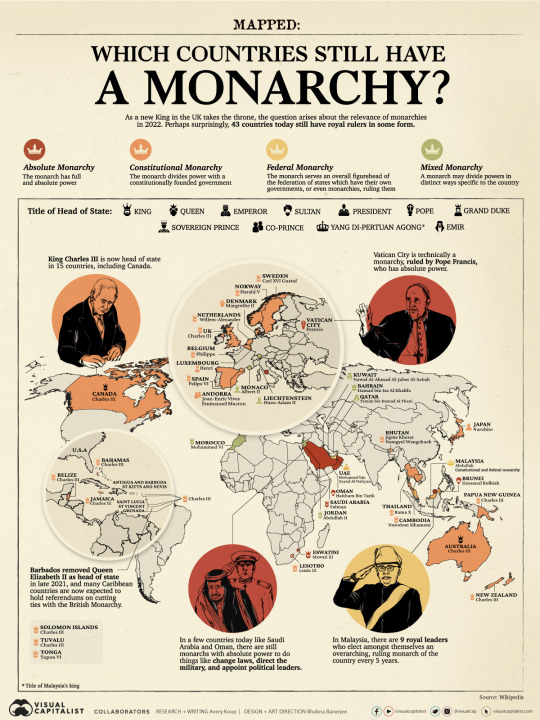
It’s first worth stating it helps to understand what kind of monarchy are we talking about? A surprising number of countries have ruling monarchs but not the same role or power. It’s important to break down the distinctions between the types of monarchies that exist today. Generally, there are four kinds.
In the constitutional monarchy, the monarch divides power with a constitutionally founded government. In this situation, the monarch, while having ceremonial duties and certain responsibilities, does not have any political power. For example, the UK’s monarch must sign all laws to make them official, but has no power to change or reject new laws. Example of countries that follow this are United Kingdom, Japan, and Denmark.
In the absolutist monarchy the monarch has full and absolute political power. They can amend, reject, or create laws, represent the country’s interests abroad, appoint political leaders, and so on. Such countries Said Arabia and Eswatini and even arguably the Vatican (the Papal office is like an absolutist monarch but of the church).
In the federal monarchy the monarch serves an overall figurehead of the federation of states which have their own governments, or even monarchies, ruling them. These countries include UAE and Malaysia.
In the mixed monarchy there is an unusual situation wherein an absolute monarch may divide powers in distinct ways specific to the country. Here Jordan, Liechtenstein, and Morocco are stand out examples.
To many contemporary critics and political progressives, monarchies seem to be purposeless antiquated relics, anachronisms that ought to eventually give way to republics.
On the contrary, nothing can be farther from the truth. Monarchies have an extremely valuable role to play, even in the 21st century and beyond. If anything their number should be added to rather than subtracted from. To understand why, it is important to consider the merits of monarchy objectively without resorting to the tautology that countries ought to be democracies because they ought to be democracies.

There are several advantages in having a monarchy in the 21st century. First, monarchs can rise above politics in the way an elected head of state cannot. Monarchs represent the whole country in a way democratically elected leaders cannot and do not. The choice for the highest political position in a monarchy cannot be influenced by and in a sense beholden to money, the media, or a political party.
Secondly and closely related to the previous point is that in factitious countries like Thailand, the existence of a monarch is often the only thing holding the country back from the edge of civil war. Monarchs are especially important in multiethnic countries such as Belgium because the institution of monarchy unites diverse and often hostile ethnic groups under shared loyalty to the monarch instead of to an ethnic or tribal group. The Habsburg dynasty held together a large, prosperous country that quickly balkanised into almost a dozen states of no power without it. If the restoration of the erstwhile king of Afghanistan, Zahir Shah, widely respected by all Afghans, went through after the overthrow of the Taliban in 2001, perhaps Afghanistan would have more quickly risen above the factionalism and rivalry between various warlords.
Third, monarchies prevent the emergence of extreme forms of government in their countries by fixing the form of government. All political leaders must serve as prime ministers or ministers of the ruler. Even if actual power lies with these individuals, the existence of a monarch makes it difficult to radically or totally alter a country’s politics. The presence of kings in Cambodia, Jordan, and Morocco holds back the worst and more extreme tendencies of political leaders or factions in their countries. Monarchy also stabilises countries by encouraging slow, incremental change instead of extreme swings in the nature of regimes. The monarchies of the Arab states have established much more stable societies than non-monarchic Arab states, many of which have gone through such seismic shifts over the course of the Arab Spring.
Fourth, monarchies have the gravitas and prestige to make last-resort, hard, and necessary decisions - decisions that nobody else can make. For example, Juan Carlos of Spain - now in disgrace but not in the beginning of his reign - personally ensured his country’s transition to a constitutional monarchy with parliamentary institutions and stood down an attempted military coup. At the end of the Second World War, the Japanese Emperor Hirohito defied his military’s wish to fight on and saved countless of his people’s lives by advocating for Japan’s surrender.
Fifth, monarchies are repositories of tradition and continuity in ever changing times. They remind a country of what it represents and where it came from, facts that can often be forgotten in the swiftly changing currents of politics.
Finally, rather counterintuitively, monarchies can serve up a head of state in a more democratic and diverse way than actual democratic politics. Since anyone, regardless of their personality or interests, can by accident of birth become a monarch, all types of people may become rulers in such a system. The head of state may thus promote causes or stir interest in issues and topics that would otherwise not be significant, as King Charles’ views on architecture and climate change proved. Politicians on the other hand, tend to have a certain personality - they are generally extroverted, can make or raise money, and have a tendency to pander or at least publicly hold to pre-defined mainstream views. The presence of a head of state with a psychological profile different from a politician can be refreshing.
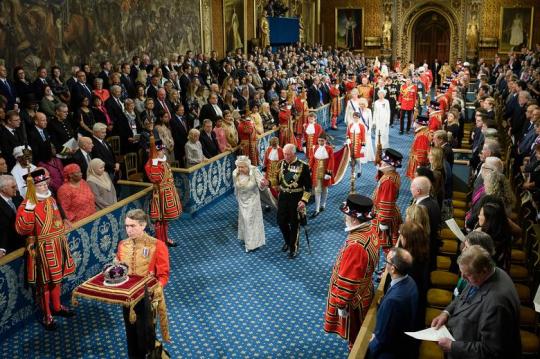
Most of the criticisms of monarchy are no longer valid today, if they were ever valid. These criticisms are usually some variation of two ideas. Firstly, the monarch may wield absolute power arbitrarily without any sort of check, thus ruling as a tyrant. However, in present era, most monarchies rule within some sort of constitutional or traditional framework which constrains and institutionalises their powers. Even prior to this, monarchs faced significant constraints from various groups including religious institutions, aristocracies, the wealthy, and even commoners. Customs, which always shape social interactions, also served to restrain. Even monarchies that were absolute in theory were almost always constrained in practice.
A second criticism is that even a good monarch may have an unworthy successor. However, today’s heirs are educated from birth for their future role and live in the full glare of the media their entire lives. This constrains bad behaviour. More importantly, because they have literally been born to rule, they have constant, hands-on training on how to interact with people, politicians, and the media.
In light of the all the advantages of monarchy, it is clear why many citizens of democracies today have an understandable nostalgia for monarchy. As in previous centuries, monarchy will continue to show itself to be an important and beneficial political institution wherever it still survives.
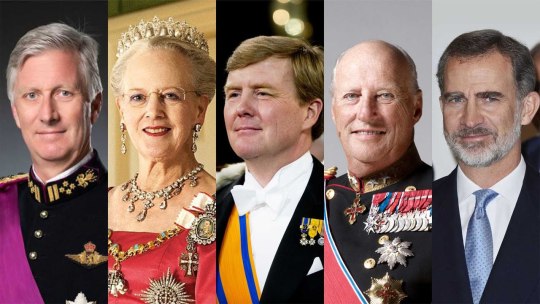
Constitutional monarchies are undoubtedly the most popular form of royal leadership in the modern era, making up close to 70% of all monarchies. This situation allows for democratically elected governments to rule the country, while the monarch performs ceremonial duties. Most monarchs are hereditary, inheriting their position by luck of their birth, but interestingly, the French president, Emmanuel Macron, technically serves as a Co-Prince of Andorra - a fact I enjoy making my good French republican friends squirm in discomfort. But France remains resolutely a republic despite many other European countries being a constitutional monarchy.
Monarchy has a long history in Europe, being the predominant form of government from the Middle Ages until the First World War. At the turn of the twentieth century every country in Europe was a monarchy with just three exceptions: France, Switzerland and San Marino. But by the start of the twenty-first century, most European countries had ceased to be monarchies, and three quarters of the member states of the European Union are now republics. That has led to a teleological assumption that in time most advanced democracies will become republics, as the highest form of democratic government.
But there still remains a stubborn group of countries in Western Europe which defy that assumption, and they include some of the most advanced democracies in the world. In the most recent Democracy Index compiled by the Economist Intelligence Unit, six out of the top ten democracies - and nine of the top 15 - in the world were monarchies. They include six European monarchies: Norway, Sweden, Denmark, the Netherlands, Luxembourg and the UK.
It remains a historical paradox. These monarchies have survived partly for geopolitical reasons, most of the other European monarchies having disappeared at the end of the First or Second World Wars. Their continuance has been accompanied by a steady diminution in their political power, which has shrunk almost to zero, and developing roles that support liberal democracy. What modern monarchies offer is non-partisan state headship set apart from the daily political struggle of executive government; the continuity of a family whose different generations attract the interest of all age groups; and disinterested support for civil society that is beyond the reach of partisan politics. These roles have evolved because monarchy depends ultimately on the support of the public, and is more accountable than people might think.
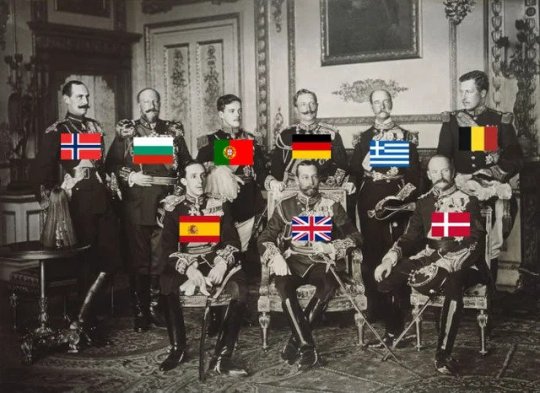
Understanding this paradox of an ancient hereditary institution surviving as a central part of modern democracies is a key part of understanding why monarchies persist and will continue to exist.
I’m going to confine answering your question to constitutional monarchy because it’s what the United Kingdom and the rest of Europe is. This is partly to narrow the wide question to something more manageable but also reflective of the fact that each country is different with its own unique history of customs, traditions, and heritage, and practices of governance, that make up the unique quality of the monarchy in question.
I’m just going to give you a general recommendation list rather than a deep academic dive into political theory. But then theory is no good without practice. History is the best place to start to understand some of the things I’ve already highlighted.
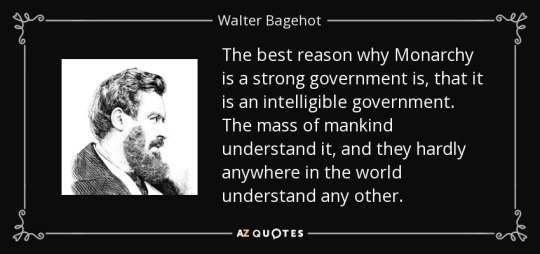
1. The English Constitution by Walter Bagehot
I know I said to start with history and here I’m recommending you begin with reading a book on constitutional theory and practice. But hear me out.
First published in 1867, this remains the indispensable guide to the role and purpose of the British sovereign. The text by Walter Bagehot (who was editor of The Economist for 17 years) is often mistaken for an official account of constitutional monarchy. In fact, it is a lively argument on how Britain’s old institutions should cope with the coming of mass-democracy. It was in this spirit that Bagehot contrasted the “dignified” parts of the constitution - the monarchy and the House of Lords - with the merely “efficient”, the Cabinet, MPs and the like. In the new age of mass-politics, he considered that the role of the monarchy was to “excite and preserve the reverence of the population” for the country’s institutions and government. Although monarchs might not have executive power anymore, they maintained three rights over “efficient” politicians - “to be consulted, to encourage and to warn”.
That the British monarchy survived while many of Europe’s were overthrown is in no small measure to the Windsors’ scrupulousness in following Bagehot’s advice. And, prophetically, he cautioned that the whole royal conjuring trick could only work if its dignity was preserved: “If you begin to poke about it, you cannot reverence it…its mystery is its life. We must not let in daylight upon the magic.”
The great thing is you don’t even have to buy it. Free copies exist online to download. I have my own copy because it really is a sort of bible for me when I have to think soberly and stay grounded as the latest royal scandal erupts and everyone is losing their heads.
2. Crown and Country: A history of England through the Monarchy by David Starkey (2010)
David Starkey is one of Britain’s finest medieval historians and fine prose stylist. A Cambridge historian whose lectures I used to sneak off to listen to - I did Classics - because the man was so charismatic, provocative, and damn clever. From one of our finest historians comes an outstanding exploration of the British monarchy, from the retreat of the Romans up until the modern day.
Crown and Country is a spin off from his TV series on the same subject. However the book is a great introduction to monarchy in Britain. In it he provides the reader with enough intellectual rigour to impart context, before livening the page with pithy tales of treachery or cruelty, of double-dealing or disaster. His delight at their shock value is tangible as he takes us from England's earliest status, as a barbarous outpost of the Roman empire, through to a rather uncomfortable attempt to second-guess how history will one day judge the contemporary members of the Windsor family (going up to the marriage of William and Kate).

Academic historians often complain that Starkey writes with the snappy zest of an unrepentant telly-don, but I doubt anybody else minds very much. He has a lovely eye for a good story – William the Conqueror being so fat that he could not fit in his sarcophagus, so that “the swollen bowels burst and an intolerable stench assailed the nostrils of the bystanders”, for example, or Henry II having such a tantrum that he fell out of bed and “threshed around the floor, cramming his mouth with the stuffing of his mattress”.
He also has a nice line in snarky humour. Academics have recently been trying to rehabilitate King John as a good administrator, he notes, but to praise him “for being a royal filing clerk shows historians looking after their own with a vengeance”.
Starkey’s great skill is to weave big themes quietly into a rollicking narrative, so that you absorb them almost without noticing they are there.
From the beginning, he argues, England’s monarchy has been unlike any other, divorced from imperial Roman traditions and based on an unspoken contract between king and people, and so reflecting a deep sense of patriotic exceptionalism. From Alfred, who effectively invented the idea of an English nation, to George III, who became the incarnation of bluff, beef-eating John Bull during the Napoleonic Wars, and on to George VI, the personification of quiet determination during Britain’s darkest and finest hours, successful kings have come to embody a wider spirit of national defiance. Perhaps that explains why, for all his faults, we remain fascinated with Henry VIII: he may have been a monster, but he was proudly, unapologetically, our monster.
Since it is evidently raw power that turns Starkey on, perhaps it is not surprising that once we are past the Glorious Revolution and the rule of dour, cunning, competent William of Orange, his narrative begins to flag. The House of Hanover, he says, was a “national joke” and although he clearly relishes the amorous misadventures of George IV and Edward VII, he spends barely 20 pages on the House of Windsor.
Compared with the blood-soaked warrior kings of his opening chapters, our recent monarchs have been personally colourless and politically irrelevant. But Starkey is not ready to give up on the monarchy. Just like his forebears, he points out, the current Prince of Wales has become the symbol of something bigger than himself, the cause of the environment and the spirit of voluntary service.
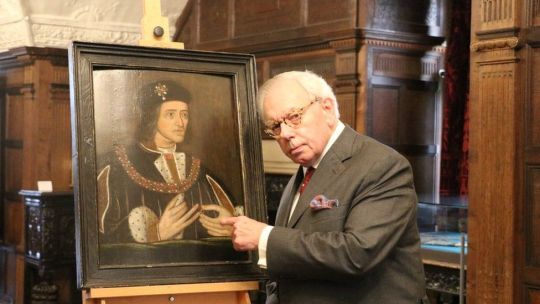
Nobody else could have set up such a vast empire of charitable endeavour: “Only he has the necessary combination of social and economic power and imagination to pull it off.” And here, Starkey argues, lies a formula for survival: “A new kingdom of the mind, spirit, culture and values,” which would appeal even to Oliver Cromwell.
Starkey is particularly good at explaining the shifting tone of monarchical power. After the straightforward Anglo-Saxon model, English kings had to incorporate the Norman way of doing things, with its "chivalric virus"; we then see the Tudors appear with their imperialist vision, followed by the disastrous Stuart belief in the divine right of kings, which James I subscribed to intellectually, and which Charles I paid for with his head. After that we see Hanoverian mediocrity, followed by Victorian pomp, and Windsor flexibility – changing nationality and name as wars with Germany, their ancestral home, demanded.
Crown & Country is a masterpiece of accessible history, underscored with profound scholarship: it takes the essential structure of hereditary monarchy, chronicles the struggles and triumphs of a rich panoply of carefully crafted characters and lays out the story of a nation. Above all, the author's passion for his subject, the royal tale of England, which is the backbone of this nation's story, explodes from every page. I defy anybody not to enjoy this book.
3. Blood Royal: Dynastic Politics in Medieval Europe by Robert Bartlett (2020)
Throughout medieval Europe, for hundreds of years, monarchy was the way that politics worked in most countries. This meant power was in the hands of a family - a dynasty; that politics was family politics; and political life was shaped by the births, marriages and deaths of the ruling family. How did the dynastic system cope with female rule, or pretenders to the throne? How did dynasties use names, the numbering of rulers and the visual display of heraldry to express their identity? And why did some royal families survive and thrive, while others did not? Robert Bartlett’s engaging Blood Royal tries to answer these questions by focusing on both the role of family dynamics and family consciousness in the politics of medieval European monarchical systems circa 500 to 1500 CE.
He creates an authoritative historical survey of dynastic power in Latin Christendom in western and central Europe and the Byzantine Empire (or former Eastern Roman Empire), providing an impressive level of depth while putting aspects of royalty and kingship in perspective. Each chapter brings the reader into this political world and aspects of medieval politics’ ties to family politics. Bartlett transitions seamlessly from example to example, but this apparent ease and vast knowledge reflects years of research and underscores his area expertise.

Blood Royal is an excellent book for anyone who has ever had a question about medieval European monarchy. If you’ve ever wondered how medieval marriages worked, the politics of dynastic succession, or even something as simple as what happened when the current monarch died then Bartlett’s book probably has an answer for you. Blood Royal is split into two sections, the first focusing on the specific lives of medieval royals, with chapters on medieval marriage, children, paternal relationships, as well as female rulers and mistresses. The second section covers dynasties rather than individuals. It is in this latter section that you’ll find discussions of names and numbers, pretenders, as well as heraldry and even the role of prophecy and astrology in medieval dynastic politics.
The scope of Blood Royal is immense. Bartlett includes early medieval dynasties like the Merovingians and Carolingians alongside later examples like the Plantagenets and the Hohenstaufen. Bartlett also incorporates an impressive range of dynasties from across medieval Europe, not limiting himself to just the French, English, and German royal families. Overall, it makes for a very impressive piece of scholarship from a senior historian, but one that is written in a very approachable and engaging fashion. The breadth of the coverage means that no matter where your interest in medieval Europe lies there’s probably something relevant to it in Blood Royal.
4. On Power: The Natural History of Its Growth by Bertrand De Jouvenel (1945)
Bertrand de Jouvenal is one of the most under-read political theorists in Europe today and it’s only in the last couple of decades his works have been translated into English. He wrote two seminal books pertinent to the state and how politics and monarchy mixed. I would thoroughly recommend his book ‘Sovereignty’ (1957) in that regard. How he treats sovereignty is clear and insightful and better than any academic I know. He describes how sovereignty in the modern sense can be traced back to the eleventh century, when absolutism was developed under such rulers as Philip the Fair. Before absolutism, it was acknowledged that every man had his seigniory, the king just as much as a simple farmer. The seigniory of the king was far greater, of course, but only as inviolable as that of every other person (as exemplified in the anecdote of Frederick the Great and the miller). The idea of a sovereignty that flows down from the sovereign to all his subjects was taken from the ancient Romans, and formed the basis of absolutism. One consequence of this was that democracy as we know it became possible in the first place. Before absolutism, there simply was no sovereignty that could be removed from the king and given to the people.
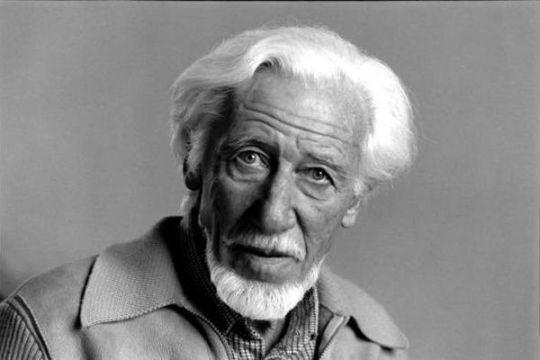
However I’m going to recommend his other book, ‘On Power’, as it’s book that defines the role of power and its relationship to sovereignty and where it came from. It goes into the role of sovereign or dux, and his or her shared responsibility with the larger group. This book explains how absolute monarchy is a recent concept, and as a result of the Enlightenment. It points out the hazards of absolute power within any form of government. It then goes into change v.s. distrust of initiative, and emerging liberalism. One of the best political treatises I have ever read. Bertrand de Jouvenel is unconventional, creative, very thorough and stringent. It's not easy to sum up, as the book is rather suggestive in nature. It doesn't so much tell you the solutions as make you think for them yourself. It gives you tools with which to overthink and analyse political problems, but doesn't force a solution on you.
Bertrand de Jouvenel (1903-1987) was a French journalist and political theorist. During World War II, he participated in the French resistance movement and finally took refuge in Switzerland, where he finished his masterpiece, On Power.
Jouvenel was troubled by the savagery of the war. Such a total war, Jouvenel realised, could not happen without the power of the modern centralised state. Jouvenel called this state, “Power” or “the Minotaur.” The question he set out to analyse was how this monster had grown so large. As indicated by the subtitle of the book, The Natural History of Its Growth, the analysis is meant to be positive political science, as opposed to normative political philosophy. When he wrote On Power, Jouvenel obviously knew little of the libertarian or classical liberal tradition. He has been labelled a “conservative liberal” à la Alexis de Tocqueville (whom Friedrich Hayek, it is worth recalling, does recognise as a full member of the classical liberal tradition).
The modern state has acquired a crushing power that includes war and conscription, an “inquisitorial mechanism of taxation,” and a police more effective than at any time in history. “Even the police regime, that most insupportable attribute of tyranny, has grown in the shadow of democracy,” Jouvenel observes. “No absolute monarch ever had at his disposal a police force comparable to those of modern democracies.” Power has continued and continues to grow.
Power is “command that lives for its sake and for its fruits.” State rulers want power and the perks that come with it. But, Jouvenel explained, in the very process of being self-interested, Power also benefits its subjects compared to what would be their situation in the anarchic state of nature. To gain their support and to make them more productive and taxable, Power provides its subjects with security, order, and other public goods. This is an old philosophical idea dear to defenders of absolutism, but it carries an analytical value of its own.
From Antiquity until the 16th or 17th century, Jouvenel argues, three ways existed to limit Power: divine law, fixed customary law, and powerful social authorities such as the ancient or the medieval aristocracy. All these were overcome. Divine law was brushed away by modern rationalism. Fixed customary law was replaced by changing laws made by absolute monarchs and, even more, by democratic parliaments. The aristocracy was stripped of any power.

Sovereignty, Jouvenel explains, is “the idea… that somewhere there is a right to which all other rights must yield.” The king claimed sovereignty against the aristocracy. Once the aristocracy was defeated, “the people” invoked it against the king. The king was simply replaced by the people or, in practice, by its representatives.
Jouvenel conceives liberty as “the direct, immediate, and concrete sovereignty of man over himself.” It is not participation in government, which is “absurdly called ‘political liberty’.” He forcefully argues that no regime other than aristocracy is “equally allergic to the expansion of Power.” Between the fall of the Roman empire and the modern nation-state, kings had to negotiate grants in aid from the aristocrats in order, for example, to fight wars, which were limited for this very reason. General conscription was unknown and impossible.
Jouvenel argues that liberty has aristocratic roots for it came from aristocrats who had the means and the will to defend their own liberty against Power. Liberty “is a subjective right which belongs to those, and to those only, who are capable of defending it.” It was certainly “a system based on class,” with all the drawbacks that this implies. Jean-Jacques Rousseau, a modern prophet of democracy, suggested that slavery might even be the necessary counterpart of free and independent citizens voluntarily devoting their time to public affairs.
To eliminate the independent social power that the aristocrats represented, kings allied themselves with powerless individuals such as the common people and the new capitalist bourgeoisie. Aristocrats were replaced by “statocrats,” individuals who derived their authority only from their position in the service of the state. The new democratic citizens would soon fall under a Power much more encompassing than that of the local lord.
A crucial idea of On Power, which can also be found in Tocqueville, is that instead of restraining Power, popular sovereignty reinforced it. Democracy was conceived by its early theorists as liberty and the rule of law. But another conception, which won the day, identified democracy with the sovereignty of the people. In this conception, democracy replaces the rule of law by the people’s good pleasure, which in practice means the good pleasure of its elected representatives and the government bureaucracy.
The popular sovereign became the new king, but without the restraints that law and aristocracy previously imposed. Liberty diminished since “[e]very increase of state authority must involve an immediate diminution of the liberty of each citizen.” Like ancient philosophers, Jouvenel sees aristocracy, democracy, and tyranny as the only feasible regimes.
5. The Role of Modern Monarchy: European Monarchies Compared edited by Robert Hazell and Bob Morris (2020)
No new political theory on this topic has been developed since Walter Bagehot wrote about the monarchy in The English Constitution (1867). The same is true of the other European monarchies. So this is a welcome update in terms of what’s happened in the last 150 years or so across Europe. It’s actually the brainchild of a project coming out of the Constitutional Unit at University College London. The book is excellent and is written by experts from Belgium, Denmark, Luxembourg, the Netherlands, Norway, Spain, Sweden and the UK. It considers the constitutional and political role of monarchy, its powers and functions, how it is defined and regulated, the laws of succession and royal finances, relations with the media, the popularity of the monarchy and why it endures. This collections of essays written by academics is the first comparative study of its kind and broadly asks with their formal powers greatly reduced, how has this ancient, hereditary institution managed to survive and what is a modern monarch’s role? What theory can be derived about the role of monarchy in advanced democracies, and what lessons can the different European monarchies learn from each other?
The public look to the monarchy to represent continuity, stability and tradition, but also want it to be modern, to reflect modern values and be a focus for national identity. The whole institution is shot through with contradictions, myths and misunderstandings. This book should lead to a more realistic debate about our expectations of the monarchy, its role and its future. As a whole these twenty contributors notes several factors to the continued survival of the constitutional monarchy in Europe today.

Firstly, remain politically neutral. Monarchs who are too interventionist will encounter resistance and lose their reputation for neutrality. Secondly, avoid scandals, or any hint of corruption. Thirdly, keep the team small. The greater the size of the royal family, the greater the risk that one of its members may get into trouble and cause reputational damage; and the greater the risk of criticism about excessive cost, and too many hangers-on. Fourthly, Understand better the plight of the minor royals, allow them a means of escape and equip them to enter careers commensurate with their abilities. They lead lives of great privilege, but lack fundamental freedoms: the right to privacy and family life which ordinary citizens take for granted, free choice of careers, freedom to marry whom they like. Fifthly, keep in your lane. Although hereditary, the monarchy is accountable, just like any other public institution. The most high profile example is King Juan Carlos of Spain, now in exile and the subject of prosecutorial investigations. But he is not alone: other monarchs who stepped out of line have also lost their thrones.
Arguably the biggest factor of all is how accountable the monarchy is to its subjects - as paradoxical as that sounds. Accountability of the monarchy in a democracy is vital and necessary. Individual monarchs can be forced to abdicate; and support for the institution as a whole can be tested in a referendum. During the twentieth century there were 18 referendums held on the monarchy in nine European countries. It was through referendums that the monarchy came to an end in Italy and Greece, and was restored in Spain; and through referendums that the future of the monarchy was endorsed in Belgium, Denmark, Luxembourg and Norway. The monarchy may seem the very antithesis of a democratic or accountable institution; but ultimately continuation of the monarchy depends on the continuing support of the people for the roles it is seen to undertake. And people can be equally fickle with emotions as they can be reasonable and grounded in common sense.
I would also recommend two videos you can watch online which basically saves your from reading the above - or watching it may inspire you to go and read the books (which would be my intention).
1. Monarchy by David Starkey (TV documentary series)
Monarchy was originally made by Channel 4 as a British TV series that ran from 2004–2007. It was written and presented by the historian David Starkey charting the political and ideological history of the English monarchy from the Saxon period to modern times. The show also aired on PBS stations throughout the United States. You can watch the series on YouTube.
youtube
The first episode looks at discusses the early history of England and the birth of the Monarchy. It looks migration of the Anglo-Saxons into Britain and discusses some early rulers including. It looks at the roles of Aethelbert and his Frankish wife Bertha in the Christianisation of Britain. It examines the dominant reign of King Offa of Mercia. Finally, it looks at Alfred the Great and how he united England against Viking invasion.
2. The Role of Modern Monarchy: European Monarchies Compared: book launch discussion
This is an online discussion hosted by BBC’s David Dimbleby amongst some of the main contributors of the book and the conclusions they reached. It’s very good discussion both wide ranging and insightful how modern monarchies operate across Europe.
youtube
On the face of it, the British monarchy runs against the spirit of the times. Deference is dead, but royalty is built on a pantomime of archaic honourifics and frock-coated footmen. In an age of meritocracy, monarchy is rooted in the unjustifiable privilege of birth. Populism means that elites are out, but the most conspicuous elite of all remains. Identity politics means that narratives are in, but the queen kept her feelings under her collection of unfashionable hats. By rights, support for the crown should have crumbled under Elizabeth has sometimes imagined it might. Instead, the monarchy thrived. And it continues to thrive and thus maddening the bourgeois woke elites and perplexing trendy decolonisation academics.

Writing in the 1860s, Walter Bagehot, The Economist’s greatest editor, noted that under Britain’s constitutional monarchy “A republic has insinuated itself beneath the folds of a monarchy.” The executive and legislative powers of government belonged to the cabinet and Parliament. The crown was the “dignified” part of the state, devoted to ceremony and myth-making. In an elitist age, Bagehot saw this as a disguise, a device to keep the masses happy while the select few got on with the job.
You do not need a monarchy to pull off the separation, obviously. Countries like Ireland rub along with a ceremonial president instead. He or she comes from the people and has, in theory, earned the honour. A dud or a rogue can be kicked out or prosecuted. To a degree, history lays down the choice - it would be comic to invent a monarchy from scratch.

However, constitutional monarchy has one advantage over figurehead presidencies that is the final reason behind Elizabeth’s surprising success: its mix of continuity and tradition, which even today is tinged with mystical vestiges of the healing royal touch. All political systems need to manage change and resolve conflicting interests peacefully and constructively. Systems that stagnate end up erupting; systems that race away leave large parts of society left behind and they erupt, too.
Under Elizabeth, Britain changed unrecognisably. Not only has it undergone social and technological change, like other Western democracies, but it was also eclipsed as a great power. More than once, most recently over Brexit, politics choked. During all this upheaval, the continuity that monarchy displays has been a moderating influence. George Orwell, no establishment stooge, called it an “escape-valve for dangerous emotions”, drawing patriotism away from politics, where love of country can rot into bigotry. Decaying empires are dangerous. Britain’s decline has been a lot less traumatic than it might have been.
Elizabeth’s sleight of hand was to renew the monarchy quietly all the while, and King Charles’s hardest task will be to renew it further. The prospect is daunting, but entirely possible. My money is on the monarchy.
Anyway, this is by no means a definitive listing of books or other kinds of resources such as online resources. But I hope I can give you the flavour of the terrain of how and why monarchies continue to persist but also thrive in today's democratic environment.

Thanks for your question.
#ask#question#monarchy#united kingdom#britain#europe#constitutional monarchy#democracy#the state#society#politics#aristocracy#governance#constitutional#elizabeth II#king charles III#walter bagehot#david starkey
73 notes
·
View notes
Text
Understanding Delhi's Status: Union Territory or State?
The status of Delhi has been a subject of confusion for many. Is it a Union Territory or a State? This blog seeks to provide an in-depth analysis of Delhi's status, its unique constitutional position, and the implications of its current status.
4 notes
·
View notes
Text
Multnomah County Court in Oregon has failed every legal test I’ve given them so far.
1 note
·
View note
Text
The First 10 Amendments Of The Constitution Of The United States - Commonly Known As The Bill Of Rights - Ratified On December 15th, 1791:
Amendment I
Congress shall make no law respecting an establishment of religion, or prohibiting the free exercise thereof; or abridging the freedom of speech, or of the press; or the right of the people peaceably to assemble, and to petition the government for a redress of grievances.
Amendment II
A well regulated [regulate, rĕg′yə-lāt″, transitive verb, 1 - to control or direct according to rule, principle, or law, 2 - to adjust to a particular specification or requirement, 3 - to adjust (a mechanism) for accurate and proper functioning (The American Heritage® Dictionary of the English Language, 5th Edition)] militia [militia, mə-lĭsh′ə, noun, 1 - an army composed of ordinary citizens rather than professional soldiers, 2 - a military force that is not part of a regular army and is subject to call for service in an emergency, 3 - the whole body of physically fit CIVILIANS eligible by law for military service (The American Heritage® Dictionary of the English Language, 5th Edition)], being necessary to the security of a free state, the right of the people [people, pē′pəl, noun, 1 - humans considered as a group or in indefinite numbers, often treated as a plural of person, especially in compounds, 2 - the mass of ORDINARY persons; the POPULACE. Used with the, 3 - body of persons living in the same country under one national government; a nationality (The American Heritage® Dictionary of the English Language, 5th Edition)] to keep and bear arms, shall not be infringed [infringe, ĭn-frĭnj′, intransitive verb, 1 - to transgress or exceed the limits of; violate, 2 - to defeat; invalidate, 3 - to encroach on someone or something; engage in trespassing (The American Heritage® Dictionary of the English Language, 5th Edition)].
Amendment III
No soldier shall, in time of peace be quartered in any house, without the consent of the owner, nor in time of war, but in a manner to be prescribed by law.
Amendment IV
The right of the people to be secure in their persons, houses, papers, and effects, against unreasonable searches and seizures, shall not be violated, and no warrants shall issue, but upon probable cause, supported by oath or affirmation, and particularly describing the place to be searched, and the persons or things to be seized.
Amendment V
No person shall be held to answer for a capital, or otherwise infamous crime, unless on a presentment or indictment of a grand jury, except in cases arising in the land or naval forces, or in the militia, when in actual service in time of war or public danger; nor shall any person be subject for the same offense to be twice put in jeopardy of life or limb; nor shall be compelled in any criminal case to be a witness against himself, nor be deprived of life, liberty, or property, without due process of law; nor shall private property be taken for public use, without just compensation. [click on link to understand how this constitutional clause is knowingly violated on a daily basis, via the use of semantics (conducted in rem, or against the property itself, rather than in personam, or against the owner of the property), by the very government that is supposed to be protecting the God given right of the people stated in the afore mentioned clause)
Amendment VI
In all criminal prosecutions, the accused shall enjoy the right to a speedy and public trial, by an impartial jury of the state and district wherein the crime shall have been committed, which district shall have been previously ascertained by law, and to be informed of the nature and cause of the accusation; to be confronted with the witnesses against him; to have compulsory process for obtaining witnesses in his favor, and to have the assistance of counsel for his defense.
Amendment VII
In suits at common law, where the value in controversy shall exceed twenty dollars, the right of trial by jury shall be preserved, and no fact tried by a jury, shall be otherwise reexamined in any court of the United States, than according to the rules of the common law.
Amendment VIII
Excessive bail shall not be required, nor excessive fines imposed, nor cruel and unusual punishments inflicted.
Amendment IX
The enumeration in the Constitution, of certain rights, shall not be construed to deny or disparage others retained by the people.
Amendment X
The powers not delegated to the United States by the Constitution, nor prohibited by it to the states, are reserved to the states respectively, or to the people.
Unfortunately, this ship has sailed. Our founding & guiding document has been trampled upon and violated for many decades now. The time to stand and fight as a unified force has long since passed. Now, through brainwashing and the inducement of mass formation psychosis via the CIA Operation Mockingbird controlled media establishment, fluoride, geoengineering, GMO & processed foods and many other nefarious schemes & mechanisms, "The People" have, in the main, been reduced to overly compliant, chemically lobotomized, physically compromised shells of the images of God that they are. As I have illustrated above, a simple perusal of our Constitution with a dictionary in hand reveals the extent of its having been ignored and abused by the ones who were entrusted by "The People" to implement it. The last time (1861-65) a united group of "The People" attempted to stand against unconstitutional overreach it didn't end very well for them. In fact, the war that ensued only served to strengthen and embolden the Federal government in its trampling on the rights of the states and "The People". Also, in 1776 the "The People" and the state weren't too far apart in the weapons they could bring to bear against one another. Fast forward 200+ years and the pitiful few of the "The People", who would even dare defend the Constitution against its domestic enemies, will be wielding their AR-15s (that the Constitution violators vociferously try to take from them) against an enemy who wields predator drones, cruise missiles, A-10 attack aircraft and microwave weapons. 1861-65 will seem tame in comparison. Not to mention that the braindead masses will consider you the problem and not their government overlords.
I posted the above because I saw a Tumblr post with the Bill Of Rights listed along with a bunch of memes calling for people to take action. While I appreciate the sentiment, it isn't grounded in our current reality. Do what you need to do for you. Hard times are coming to America; deservedly so because we have forsaken our Maker who blessed us with America in the first place.
Repent, and believe the good news of Jesus the Messiah, for His kingdom is at hand!
#bill of rights#us constitution#constitutional#2nd amendment#2ndamendment#5th amendment#10th amendment#gospel of jesus christ#repent#faith in jesus#nwo new world order#agenda 21#agenda 2030#government corruption#government lies#government control
12 notes
·
View notes
Text


fascinated/horrified by this set of tweets…
#the thing about these tweets is the absolutely rancid entitlement in them and then the attempt to justify it#'keep up a charade that the floor is clean' do you... not clean your house? do you not mop the floors??????????#anyway. are you americans okay???#specifically…. are white americans ok????#is the right to keep your shoes on also written into your constitution?#also the getting sick is 99 per cent random tweet is giving me brain damage#anyway. nobody is coming into my home with their outside shoes on#and if the feel of your bare feet on the floors i clean almost every day is so revolting to you#we have inside shoes?????#polls#*r
29K notes
·
View notes
Text
14K notes
·
View notes
Text

FUCK YES THAT'S THE STUFF
#free gaza#free palestine#gaza strip#irish solidarity with palestine#palestine#gaza#news on gaza#al jazeera#boycott israel#israel#Yemen#Jerusalem#Tel Aviv#Center for Constitutional Rights#Joe Biden#Antony Blinken#Lloyd Austin#Genocidin Biden#USA
26K notes
·
View notes
Text
Ky. county religious social media messaging is in the crosshairs
Publisher: In-Sight Publishing
Publisher Founding: March 1, 2014
Web Domain: http://www.in-sightpublishing.com
Location: Fort Langley, Township of Langley, British Columbia, Canada
Journal: In-Sight: Independent Interview-Based Journal
Journal Founding: August 2, 2012
Frequency: Three (3) Times Per Year
Review Status: Non-Peer-Reviewed
Access: Electronic/Digital & Open Access
Fees: None…
View On WordPress
#complaint#constitutional#county clerk#crucifixion#Elwood Caudill Jr.#Establishment Clause#First Amendment#Freedom From Religion Foundation#Good Friday#government social media#Kentucky#nonreligion#personal religious views#Rowan County#sectarian messages#separation between state and church#social media post
0 notes
Text
Word of The Hour: constitutional
English: constitutional 1. belonging to, or inherent in, the constitution, or in the structure of body or mind 2. in accordance with, or authorized by, the constitution of a state or a society 3. regulated by, dependent on, or secured by, a constitution ------------ - Chinese: 组成的 - French: constitutionnel - German: konstitutionell - Hindi: संविधानी - Italian: costituzionale - Portuguese: constitucional - Spanish: constitucional ------------ Join our new subreddit for language learners @ https://reddit.com/r/LearnANewLanguage
0 notes
Text
In the Council he took his argument against the force to a high constitutional plane:
It did seem strange to him that it never occurred to those who took an active part in the discussion that the native police force as at present constituted, was clearly illegal, and in direct violation of the fundamental principles of the British constitution. The hon. Gentleman then went on to show that, according to the Bill of Rights, the raising of a standing army in time of peace other than the regular army, was illegal. This, in fact, was the foundation of all their rights, as secured to them by the great constitutional measure to which he alluded . . . The existence of such a force had in time past proved extremely dangerous to the liberty of the subject, and he saw no reason to doubt that, if tolerated, it would prove so again.
"Killing for Country: A Family History" - David Marr
#book quotes#killing for country#david marr#nonfiction#maurice charles o'connell#council#argument#constitutional#native police#police force#british constitution#bill of rights#army#illegal#violation
0 notes
Text
https://youtube.com/shorts/LhDKMs2bi7w?si=zokDB0ENDB51NA0m
0 notes
Photo
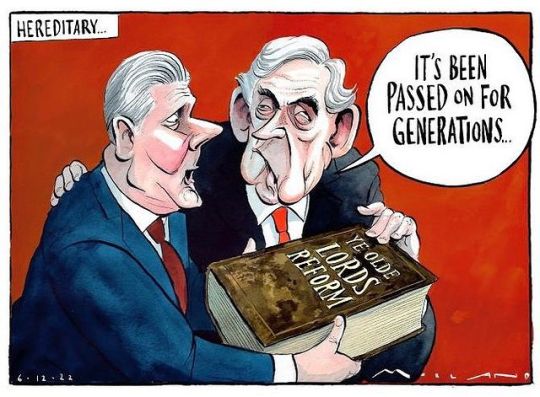
It is a piece of intellectual stupidity to want to substitute something else for the social structure that has grown up through the centuries and is fortified by tradition.
- Oswald Spengler
#spengler#oswald spengler#quote#tradition#britain#england#house of lords#reform#constitutional#politics#labour party#keir starmer#gordon brown#government#culture
29 notes
·
View notes
Text
Afari-Gyan highlights 3 areas for constitutional amendment
A former Chairman of the Electoral Commission (EC), Dr Kwadwo Afari-Gyan, has recommended specific areas of the 1992 4th Republican Constitution that should be considered for amendments.
The areas are; separation of powers between the Executive and the Legislature, the Council of State, and Local government
In his address during the Constitution Day Public Lecture on January 8, 2023, he said…

View On WordPress
0 notes